Filter by
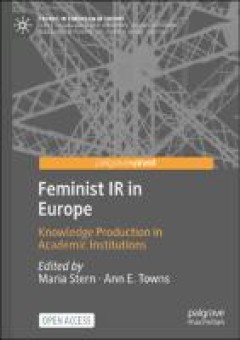
Feminist IR in Europe : knowledge production in academic institutions
The aim of this open access book is to take stock of, critically engage, and celebrate feminist IR scholarship produced in Europe. Organized thematically, the volume highlights a wealth of excellent scholarship, while also focusing on the politics of location and the international political economy of feminist knowledge production. Who are some of the central feminist scholars located in Europe…
- Edition
- -
- ISBN/ISSN
- 9783030919993
- Collation
- ix, 174 p.
- Series Title
- -
- Call Number
- 327.0704 STE f
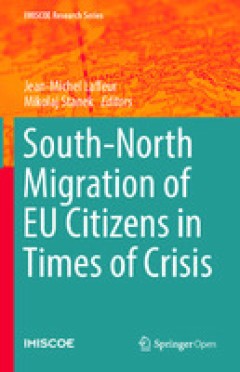
Outh-north migration of eu citizens in times of crisis
The global fi nancial and economic crisis has been hitting the European Union severely since 2008. Although the economic crisis began in advanced economies and then spread all over the globe, its impact and implications are far from being equally distributed geographically. This is particularly visible within the European Union. While some countries, mainly in the North,…
- Edition
- -
- ISBN/ISSN
- 9783319397634
- Collation
- 224 p.
- Series Title
- -
- Call Number
- 304.8. MIKO o
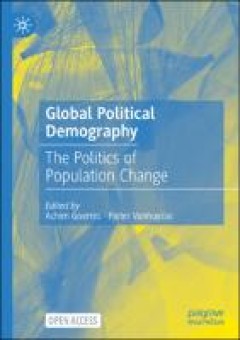
Global political demography : the politics of population change
This open access book draws the big picture of how population change interplays with politics across the world from 1990 to 2040. Leading social scientists from a wide range of disciplines discuss, for the first time, all major political and policy aspects of population change as they play out differently in each major world region: North and South America; Sub-Saharan Africa and the MENA regio…
- Edition
- -
- ISBN/ISSN
- 9783030730659
- Collation
- x, 459. : ill.
- Series Title
- -
- Call Number
- 304.6 GOE g
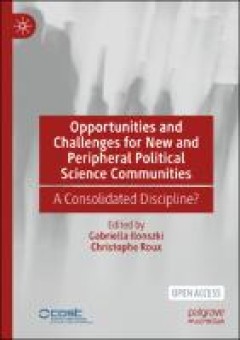
Opportunities and challenges for new and peripheral political science communi…
This open access book offers an updated examination of the institutionalisation of political science in sixteen latecomer or peripheral countries in Europe. Its main theme is how political science as a science of democracy is influenced and how it responds to the challenges of the new millennium. The chapters, built upon a common theoretical framework of institutionalisation, are evidence-based…
- Edition
- -
- ISBN/ISSN
- 9783030790547
- Collation
- xiv, 288 p. ; ill
- Series Title
- -
- Call Number
- 320 ILO o
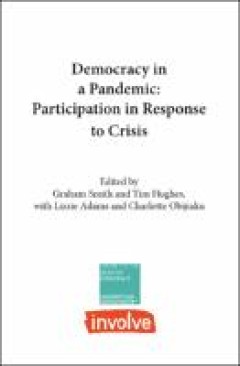
Democracy in a pandemic: participation in response to crisis
Covid-19 has highlighted limitations in our democratic politics – but also lessons for how to deepen our democracy and more effectively respond to future crises. In the face of an emergency, the working assumption all too often is that only a centralised, top-down response is possible. This book exposes the weakness of this assumption, making the case for deeper participation and deliberation…
- Edition
- -
- ISBN/ISSN
- 9781914386183
- Collation
- vii, 200 p. ; ill
- Series Title
- -
- Call Number
- 323.042 SMI d

The advisory roles of political scientists in Europe
This open access book centres on the advisory roles of political scientists in Europe. Based on a cross-national survey, the book offers a comparative analysis of the viewpoints and activities of university-based political scientists on external engagement. Political scientists in Europe appear more extrovert as academics than sometimes thought. In their professional functioning they engage in …
- Edition
- -
- ISBN/ISSN
- 9783030860059
- Collation
- xxx, 436 p. ill
- Series Title
- -
- Call Number
- 320 BRA t

Learning from the history of british interventions in the middle east
Interrogates whether the British government has learned anything from its interventions in the Middle East, from the 1950s to 2016 Learning from history helps states to create foreign and security policy that builds upon successes and avoids past mistakes. Drawing on a wealth of previously unseen documents, sourced by Freedom of Information requests, together with interviews with government and…
- Edition
- -
- ISBN/ISSN
- 9781474437974
- Collation
- vii, 279 p. : bnw, ill.
- Series Title
- -
- Call Number
- 327.41056 KET l
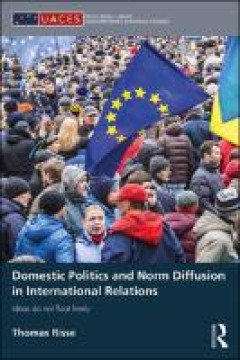
Domestic politics and norm diffusion in international relations : ideas do no…
This book collects Thomas Risse's most important articles together in a single volume. Covering a wide range of issues – the end of the Cold War, transatlantic relations, the "democratic peace," human rights, governance in areas of limited statehood, Europeanization, European identity and public spheres, most recently comparative regionalism – it is testament to the breadth and excellence o…
- Edition
- 17
- ISBN/ISSN
- 9781315623665
- Collation
- x, 328 p. : ill.
- Series Title
- -
- Call Number
- 327 RIS d

The right-wing critique of Europe : nationalist, souverainist and right-wing …
The Right-Wing Critique of Europe analyses the opposition to the European Union from a variety of right-wing organisations in Western, Central and Eastern Europe. In recent years, opposition to the processes of globalisation and the programme of closer European integration, understood as a threat to the sovereignty of individual member states, has led to an intensification of Eurosceptic sentim…
- Edition
- 2
- ISBN/ISSN
- 9781003226123
- Collation
- x, 290 p. : ill.
- Series Title
- -
- Call Number
- 341.2422 SON t
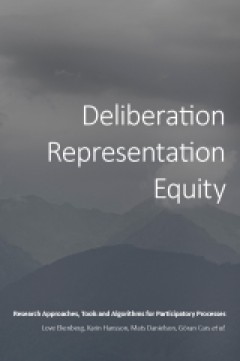
Deliberation, representation, equity: research approaches, tools and algorith…
What can we learn about the development of public interaction in e-democracy from a drama delivered by mobile headphones to an audience standing around a shopping center in a Stockholm suburb? In democratic societies there is widespread acknowledgment of the need to incorporate citizens’ input in decision-making processes in more or less structured ways. But participatory decision making is …
- Edition
- -
- ISBN/ISSN
- 9781783743056
- Collation
- 376 p. : ill. : ind. ; 24 cm
- Series Title
- -
- Call Number
- 323.042 DEL d
 Computer Science, Information & General Works
Computer Science, Information & General Works  Philosophy & Psychology
Philosophy & Psychology  Religion
Religion  Social Sciences
Social Sciences  Language
Language  Pure Science
Pure Science  Applied Sciences
Applied Sciences  Art & Recreation
Art & Recreation  Literature
Literature  History & Geography
History & Geography